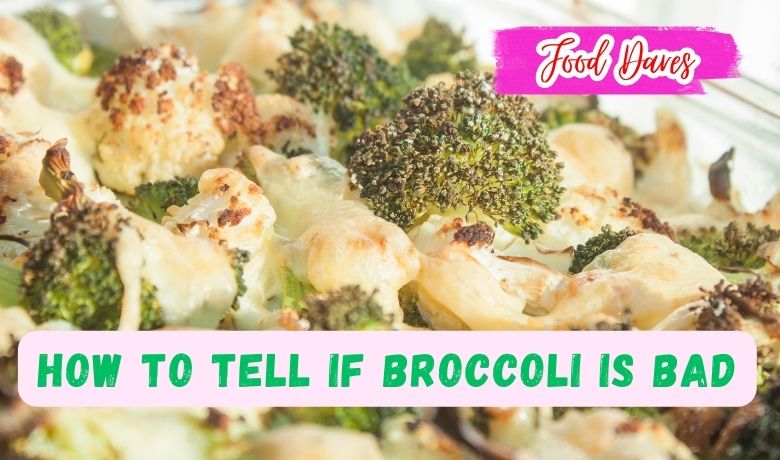Broccoli is a versatile and nutritious vegetable that plays a vital role in a healthy diet. It is packed with essential vitamins, minerals, fiber, and antioxidants, making it a valuable addition to meals. However, it is crucial to ensure that the broccoli we consume is fresh and of high quality. This article provides comprehensive guidance on how to tell if broccoli is bad and offers practical tips for selecting, storing, and assessing its freshness.
How to Tell If Broccoli Is Bad
Color: One of the first indicators of broccoli’s freshness is its color. Vibrant green hues are a sign of freshness while yellowing or browning suggests that the broccoli is past its prime and may not taste as good or be as nutritious.
Smell: The scent of fresh broccoli should be slightly earthy and pleasant. However, a strong or unpleasant odor may indicate spoilage. If the broccoli emits an off-putting smell, it is best to discard it to avoid any potential health risks.
Texture: The texture of broccoli is another important aspect to consider. Fresh broccoli should have a firm and crisp texture. If the florets appear wilted, the stalks feel limp, or the overall texture is mushy, it is a clear sign that the broccoli has gone bad.
Mold: The presence of mold on broccoli is a definite indication of spoilage. Mold can appear as fuzzy patches, dark spots, or discolored areas. It is crucial to discard broccoli with any visible mold to prevent potential health hazards.
Is Broccoli Good for You?
Before delving further into assessing broccoli’s freshness, it is important to highlight the numerous health benefits it offers. Broccoli is a nutritional powerhouse, containing high levels of vitamins C and K, folate, fiber, and antioxidants. It supports a healthy immune system, aids digestion, reduces inflammation, and contributes to overall well-being.
How to Prevent Broccoli from Going Bad
To maximize the shelf life and freshness of broccoli, proper storage, and handling are crucial. This section provides practical tips on how to prevent broccoli from spoiling. Factors such as temperature, moisture, and airflow should be considered to extend its longevity.
How Long Does Broccoli Last in the Fridge?
Understanding the typical shelf life of broccoli is essential for consuming it at its best. This section provides a general guideline on how long broccoli can be stored in the refrigerator. It also highlights signs of deterioration to be aware of, indicating that the broccoli is no longer fresh.
How to Store Broccoli?
Proper storage techniques are key to maintaining the quality of broccoli. This section provides detailed instructions on how to store broccoli effectively, ensuring optimal freshness. Methods such as wrapping in a damp paper towel, using a plastic bag or container, and storing it in the refrigerator’s crisper drawer are discussed.
How to Tell If Frozen Broccoli Is Bad?
Frozen broccoli is a convenient option for many, but it is essential to assess its quality before consumption. This section outlines how to tell if frozen broccoli has gone bad, including signs of freezer burn, discoloration, and changes in texture that may affect its taste and texture.
How to Tell If Cooked Broccoli Is Bad?
Leftover cooked broccoli should also be inspected before consumption. This section explains how to recognize signs of spoilage in cooked broccoli, such as changes in color, texture, odor, or the presence of mold. Proper food safety measures are emphasized to prevent any potential health risks.
How to Tell If Raw Broccoli Is Bad?
To determine if raw broccoli has gone bad, look for visual cues and inspect its texture and smell. Signs of spoilage include yellow or brown discoloration, wilting or limpness, slimy texture, and a strong, unpleasant odor. Fresh raw broccoli should have vibrant green florets, firm stalks, and a slightly earthy scent. If you notice any of these signs of spoilage, it is best to discard the broccoli to avoid any potential health risks.
How to Choose Fresh Broccoli at the Grocery Store
Selecting fresh broccoli at the grocery store is key to ensuring its quality and taste. This section offers tips for choosing the best broccoli:
Color: Look for broccoli with vibrant, dark green florets. Avoid broccoli with yellowing or browning discoloration, as it indicates age and potential deterioration.
Firmness: Gently squeeze the stalks and florets. Fresh broccoli should feel firm and sturdy. Avoid broccoli with soft or mushy spots, as it may be a sign of spoilage.
Floret Appearance: Examine the florets for tight clusters and compact heads. They should be tightly closed and show no signs of wilting or separation. Avoid broccoli with open or flowering florets.
Stalks: Check the stalks of the broccoli. They should be firm and crisp, without any signs of bending or rubberiness.
Leaves: If the broccoli comes with leaves attached, they should be vibrant green and fresh-looking. Wilted or yellowing leaves may indicate older broccoli.
Overall Condition: Choose broccoli that looks clean and free from major blemishes or bruising. Any visible damage may affect its quality and shelf life.
Conclusion
In conclusion, broccoli is a valuable vegetable that offers numerous health benefits when consumed fresh. By understanding how to assess its freshness, you can make informed choices and enjoy the best quality broccoli. Pay attention to the color, smell, texture, and presence of mold to determine if broccoli has gone bad. Practice proper storage techniques to prolong its shelf life, and be aware of signs of spoilage in both raw and cooked broccoli.
When shopping for broccoli, use the guidelines provided to select fresh and high-quality produce. By incorporating fresh broccoli into your meals, you can take advantage of its nutritional value and enjoy its delicious taste. Stay mindful of these tips, and you’ll be able to savor the goodness of broccoli while maintaining a healthy and well-balanced diet.



